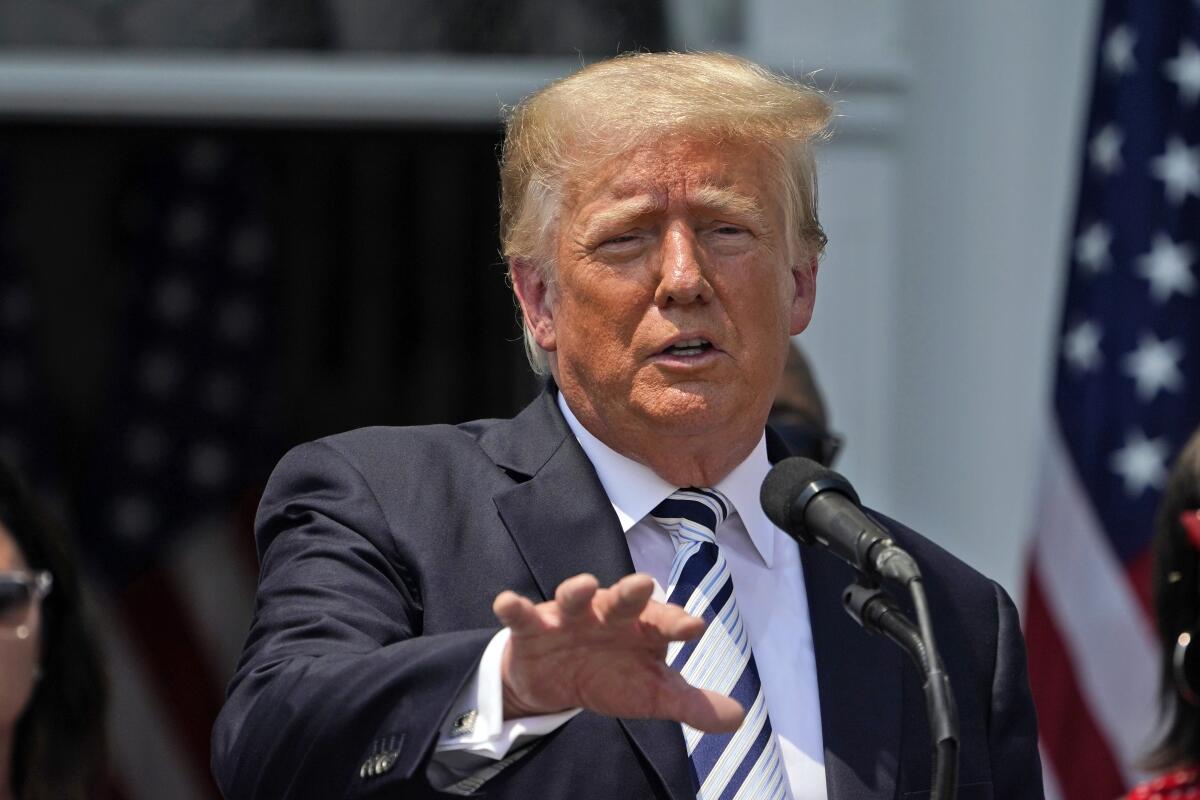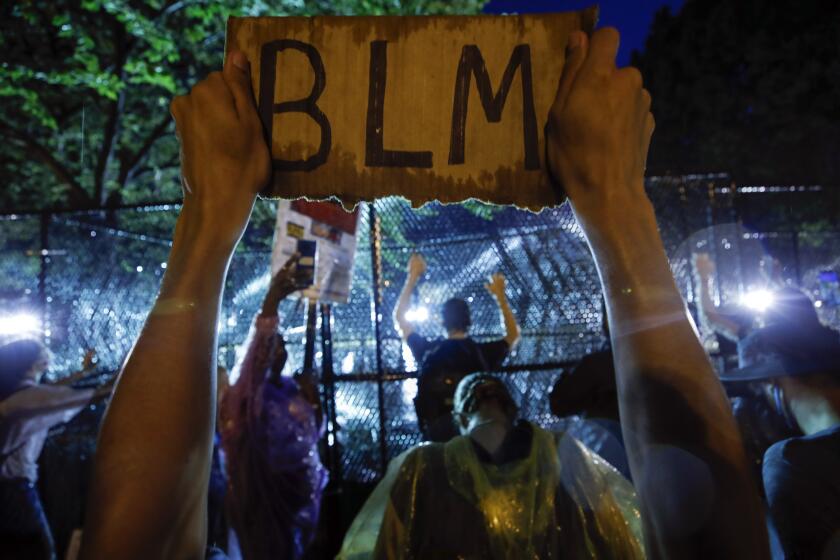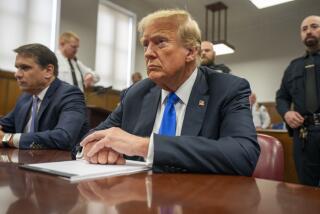Column: Why is Trump running for president again? To stay out of jail

WASHINGTON — Throughout his epic, scandal-ridden career, Donald Trump has compiled an astonishing record of impunity, constantly staying one jump ahead of prosecutors, plaintiffs and creditors.
He is the only president to be impeached twice, and acquitted twice by the votes of Republican senators.
He spent almost three years under investigation for what looked like collusion with Russia, only to walk away scot-free.
Democrats moved sharply to the left on racial attitudes over last decade, opening a wide gap with the GOP. White Democrats shifted the most.
His former lawyer, Michael Cohen, went to prison for paying hush money to an adult entertainer known as Stormy Daniels, but “Individual-1,” the man who ordered him to write the check, was never held accountable.
That record of escapes would make Houdini envious.
But Trump remains under the gun. He’s still in search of escape routes.
A House committee is examining his attempts to overturn last year’s presidential election, including his actions when a mob of his supporters stormed the Capitol on Jan. 6.
A prosecutor in Georgia is investigating whether he violated state law against soliciting election fraud when he demanded that officials “find 11,780 votes” — the number he needed to undo Joe Biden’s victory in that state.
And prosecutors in New York are looking into allegations that Trump, or at least the closely held family business he runs, committed tax and bank fraud.
But don’t count him out.
“His life has been a series of lessons showing that with aggressive lawyering and a lot of chutzpah, you can achieve almost total immunity,” Norman Eisen, a counsel to the House Judiciary Committee during Trump’s first impeachment, told me.
The former president’s most visible battles are against the Democratic-led House of Representatives, which asked the Justice Department last week to prosecute his former aide Stephen K. Bannon after Bannon refused to comply with a subpoena.
Trump has ordered Bannon and other former associates to stonewall on the grounds that all of his conversations with them are protected by executive privilege.
That’s the legal doctrine that allows a president to protect internal White House deliberations from congressional snooping, a claim Trump asserted broadly when he was president.
In this case, the claim sounds far-fetched: How can a former president assert executive privilege, especially over conversations with someone like Bannon, who wasn’t a government official at the time?
But constitutional lawyers say Trump has several arguments he can make. He’ll probably try them all.
First, a former president does have the right to assert executive privilege. Trump can thank former President Nixon for that, fittingly enough. In 1977, Nixon tried to block the federal government from releasing his presidential papers; he lost, but in deciding the case, the Supreme Court declared that former presidents can assert the privilege under some circumstances.
As for Bannon, the Justice Department has long argued that executive privilege can protect a president’s meetings with nonemployees as long as the discussion covers official business. In January, Bannon reportedly urged Trump to block Congress from certifying Biden’s election, then told listeners of his Jan. 5 podcast: “All hell is going to break loose tomorrow.”
“If the cases are argued on the merits, Trump and Bannon are unlikely to prevail,” Jonathan Shaub, a former Justice Department lawyer who now teaches at the University of Kentucky‘s law school, told me.
“Executive privilege doesn’t apply to acts taken in a personal or political capacity, and it doesn’t apply when there are concrete allegations of wrongdoing.”
But winning may not be the point.
“In the end, this is all about delay,” Shaub said.
Trump and his supporters know that if they can tie the House committee in knots until the 2022 congressional election, there’s a good chance Republicans will win control of the chamber and kill the investigation.
House Speaker Nancy Pelosi (D-San Francisco) and committee Chairman Bennie Thompson (D-Miss.) know that too. That’s a major reason they asked the Justice Department to prosecute Bannon for criminal contempt; it’s faster than a civil suit.
The next step is up to Atty. Gen. Merrick Garland, who has exasperated some Democrats by keeping his distance from the Trump investigations.
President Biden said last week that he thinks Garland should prosecute Bannon and others who reject congressional subpoenas. That was an improper, Trump-style act of presidential jawboning; Garland pushed back, saying he wanted to return the Justice Department to its apolitical norm.
But Biden was right on the merits; without the threat of prosecution, Bannon and others will continue to stonewall.
Meanwhile, Trump has made his defense almost entirely political, not only denouncing the House investigation but praising the mob that invaded the capital.
“The insurrection took place on Nov. 3, election day,” he said in a written statement last week. “Jan. 6 was the protest!”
He’s used the investigation to raise money for his political action committee, which has collected millions.
“The Left will never stop coming after me,” he wrote in an email to donors last week. “Please contribute ANY AMOUNT IMMEDIATELY to make a statement to the Left that you’ll ALWAYS stand with YOUR President.”
And there, no matter how the legal wrangles turn out, lies the answer to a persistent question about Trump: What makes him run?
Ego, surely, in part. A desire to take revenge on his adversaries too.
But two practical reasons, as well.
One is money. Political contributions may be the most reliable revenue stream the Trump family enterprise has at the moment.
The other, equally important, is to bolster his legal defense. As long as he’s running (or even sort of running), Trump can denounce every inquest and subpoena as just another part of a political vendetta. It’s a way to hold his troops together — and to make every prosecutor think twice.
He’s notching up another presidential first: He’s running for reelection to stay out of jail.
More to Read
Get the L.A. Times Politics newsletter
Deeply reported insights into legislation, politics and policy from Sacramento, Washington and beyond. In your inbox three times per week.
You may occasionally receive promotional content from the Los Angeles Times.












